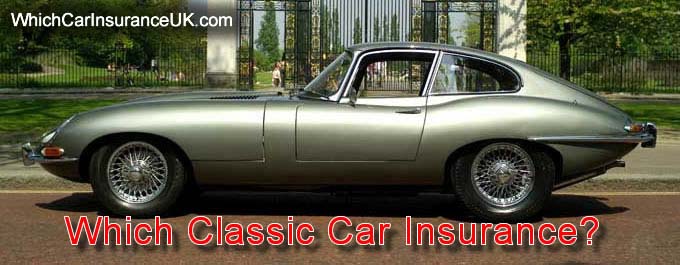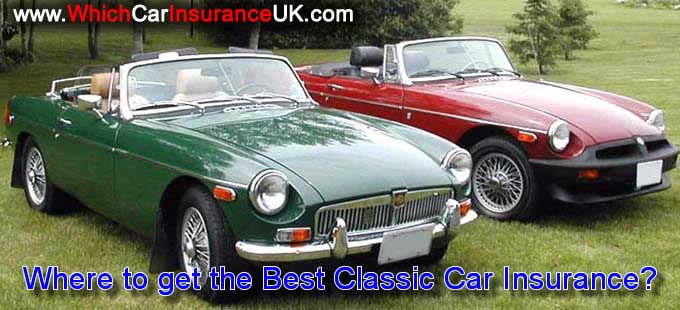Classic Car InsuranceClassic car insurance is a legal requirement for UK drivers who own a vehicle deemed in the 'classic car' range. The age of vehicles that fall into the 'classic car' category can vary but commonly cars etc need to be at least 25 years old . Enthusiasts have enjoyed many benefits of possessing a classic car such as exemption from road tax duties as well as the fact that classic car insurance is comparatively cheaper that drivers owning more modern cars. Drivers seeking classic car insurance must agree certain criteria with insurance firms. The first is that the value of the vehicle needs assessed by the insurance company on order to calculate the insurance cost. Also insurance firms offering policies for classic cars may require a set annual mileage for the vehicle such as 3,000 miles per year. Unlike modern cars it can be extremely difficult to value a classic motor in order to be quoted the correct insurance. It is best to contact an expert in accessing the car's worth that both the owner and classic car insurance provider can agree to. Also owners should remember that as classic motors age their value may increase so it is important to have their monetary value checked every 12 or 18 months. As well as other variables, the annual cost of classic car insurance will reflect the overall set value of the vehicle. Many classic car enthusiasts only drive their prized vehicles during the summer months, so it is a great idea to ask providers for short term 3 or 4 month policies. Vehicles on the road for short periods such as these will have a shorter mileage usage and that will mean a more reduced classic car insurance cost. Classic Cars Insurance UKWhat's the definition of a classic car to qualify for classic cars insurance?When it comes to stating what does and doesn't qualify as a classic car and so qualifying for classic car insurance, there's no fixed definition that is accepted by every car insurers that offers this insurance. For road and income tax purposes, if you possess a car that is older than 20 years and has a value of over £15,000, this is classified as a classic vehicle by HM Revenue & Customs. If you own a car that you think maybe deemed a classic, it is very advisable to speak to my companies offering classic insurance before deciding on policy. This will ensure you take out the right level of classic car insurance cover for your particular vehicle.
How much will I pay for classic car insurance in the UK?There are a several specialist classic car insurance companies which cater specifically for this particular market. But when seeking classic car insurance, drivers and owners of older vehicles should also check with mainstream companies for some may actually offer better deals than those companies claiming to experts in the classic insurance field. As with every type of car insurance it is imperative when seeking classic insurance, the owner should do the research as the cost of cover can vary considerably from one insurer to the next. Some only have stated that the difference between polices can be as much as £200. The best way to compare classic car insurance costs is by using one or more of the price comparison service websites such as MoneySupermarket or confused.com. The insurance costs for owners of classic cars tend to be considerably less than policies for more modern cars. The main reason being that classic cars tend to be better maintained and driven far less than newer vehicles - which results in a lower number of claims. This, in turn, translates into cheaper premiums. What is covered by a classic car insurance policy?While a comprehensive classic car insurance policy is the same as to a policy for a modern vehicle, there are a few crucial differences that owners need to be aware of. Firstly, the valuation of a classic vehicle is crucial, as it can difficult calculating the “true value” of an older or vintage vehicle. The importance here is that if your classic insurance policy states that it will pay out the “market value” in the event of a write-off, but this payout may not reflect the true worth of the vehicle and lead to a large difference between what the is paid and what should be paid.. To get around this problem, it's advisable to agree a value with the classic insurer when applying for the policy.
You can get a valuation carried out by an approved and recognised industry expert before arranging your policy. There may be a cost for this service, but this is a price worth paying to ensure that if the worst happens, you get the right payout. In addition, you should also talk to your insurer about being able to update the agreed value of the vehicle each year, as some vintage models will increase in value as they get older. Failure to update the car's value in a policy, and you will not get a payout that reflects the current value. |
||


